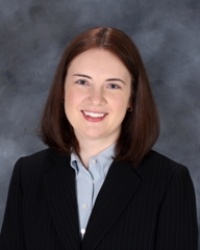In Minnesota, there are nearly 300 district court judges who preside over matters in ten judicial districts. While the Minnesota Rules of Court provide attorneys with significant information applicable to court proceedings, each judge may have his or her individual preferences with respect to motion practice and courtroom conduct.
In an effort to assist attorneys who may be appearing before a judge for the first time, the MSBA Civil Litigation Section Governing Council provided all district court judges with a brief survey. The responses that we received are organized on the right by judicial district and then alphabetically by judge’s name. We hope you find these responses to be helpful in your preparation for district court appearances.
For information about this project or to report an error in any judicial directory listing, contact Kara Haro, MSBA staff liaison to the Civil Litigation Section.
Ninth Judicial District Judges | Courtroom Preferences
Rasmusson, Anne
 Assistant Chief District Court Judge
Assistant Chief District Court Judge
Counties: Mahnomen County
State Court Bio: View Bio
Contact with chambers:
- Set forth your preferred method to contact chambers (telephone, email, etc.). Email
- To whom may attorneys direct scheduling/logistical questions? My law clerk or my court reporter
- To whom may attorneys direct substantive questions? My law clerk
Motion practice:
- Set forth your practices and procedures for scheduling motion hearings. This is usually done in the initial Telephone Scheduling Conference, a subsequent Telephone Scheduling Conference or by email.
- Identify any type of motion for which you do not require a hearing.When the parties agree to written submissions.
- Do you accept telephone calls from attorneys to rule on discovery disputes that occur during depositions? Yes
- How much time do you allot for motion hearings?Usually an hour unless a longer time period is requested
- Set forth your practices and procedures with respect to attending a hearing by telephone or video conference.Typically I preferred in person attendance, but COVID-19 has changed this.
- Do you have particular requirements or procedures relating to requests to amend the scheduling order?Have the amendments specified in writing and submit a proposed order.
Written submissions:
- Do you want to receive paper courtesy copies of the parties' written submissions? If you do, set forth the number and preferred format of courtesy copies and identify any document type you do not want to receive. No
In-court proceedings:
- Set forth your practices and procedures with respect to attorney's use of technology in the courtroom and during trial.Technology use is discussed at the Pretrial Hearing.
- Do you permit parties to bifurcate oral argument so different attorneys address different legal issues? Yes
Pretrial procedures:
- What is your schedule for a typical trial day? 8:30 Meet with parties/counsel 9:00 Start trial 10:30 15 minute break Noon Hour break for lunch 1:00 Meet with parties/counsel and resume trial asap 3:15 15 minute break 4:30-5:00 End for day
- Do you impose time limits with respect to opening statements and closing arguments? No
- Set forth your practices and procedures for handling objections. Object, state nature of objection, opposing counsel responds and I issue a ruling
- May attorneys obtain daily transcripts during trial? If so, what procedure should attorneys follow? Not through my court reporter